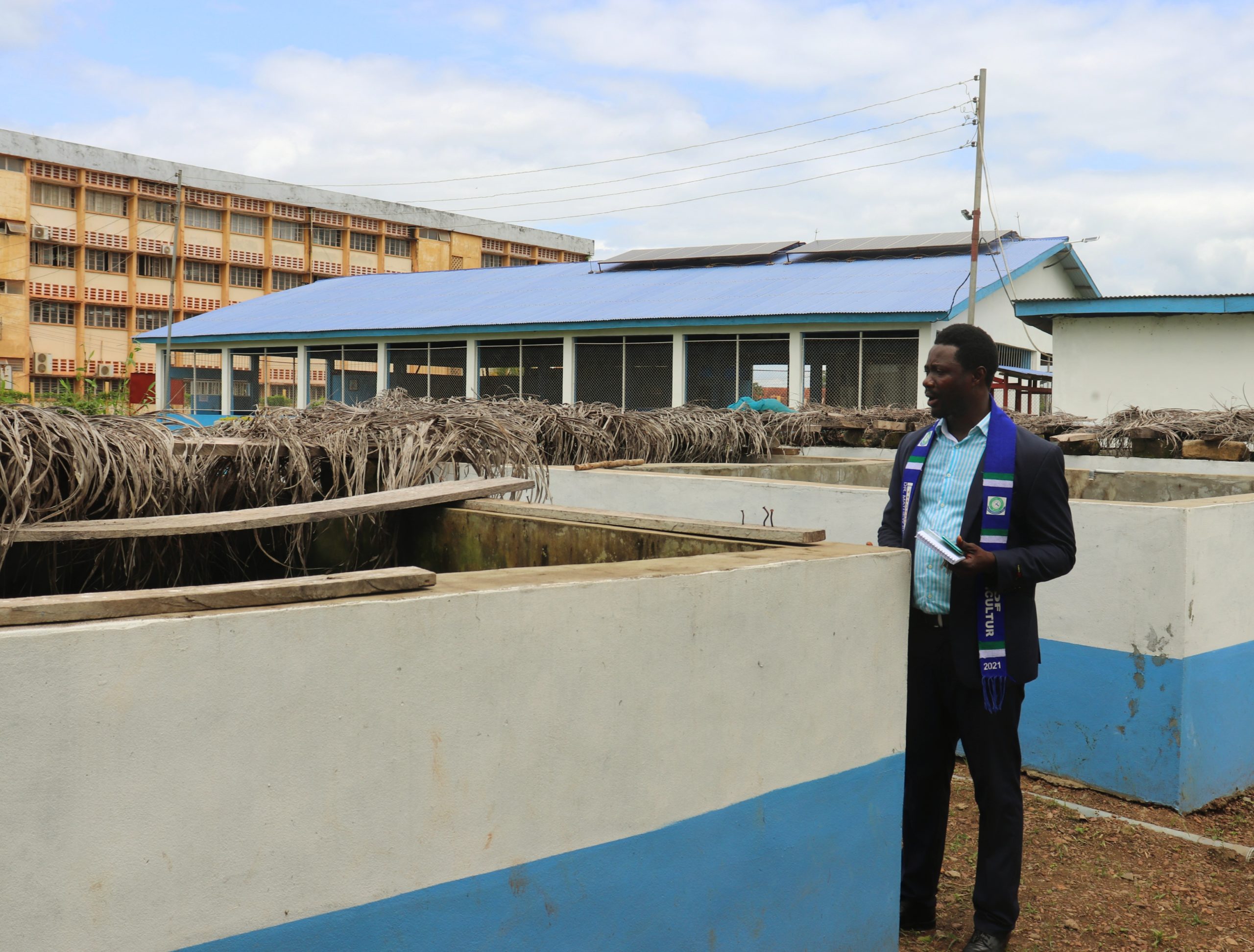By Ibrahim Joenal Sesay
FREETOWN, Aug 3 (232news.com) – Department of Aquaculture and Fisheries at Njala University, Moyamba District, South of Sierra Leone, has started enjoying the first ultra-modern Recirculatory Aquaculture System Activities (RASA) in Sierra Leone which was donated by Seawright Mining Company (SMC).
Despite the deadly global Covid-19 pandemic, SMC through its President and Chief Executive Officer, Dr Alfred Seawright, one of Sierra Leone’s trusted investors, commenced work for the first modern West Africa Fish Farming at Njala University, in September 2020.
The system which has been installed at Njala University has placed the University ahead to lead in technical coordination for Nimiyama Chiefdom in Kono District and Gorama Mende in Kenema District which have similar system donated by SMC.

The system SMC installed is 100% guaranteed as it will be able to generate 40 tons of fish every six (6) months, and will do that full time.
Head of Department for Aquaculture and Fisheries Management, Dr Matthew D. Kpundeh pointed out that SMC started the project from inception, and constructed the building.
He explained that before the construction, the Mining Company took staff of their company, Parliamentarians, Permanent Secretaries, the media, Head of Aquaculture and Fisheries Management Department at Njala University, his Deputy and students to Ghana, Nigeria and China to under study those countries Aquaculture system in order to get the best type of system for Sierra Leone.

After those visits, the team chose the Chinese Model which is now being implemented in the country.
“We came back from China and got the innovation of the RASA. The mining company asked for land to construct the building which was given to them by the university and the building has been constructed all the equipment that are needed for the reproduction of the RAS already have been completed,” he said.
Dr Kpundeh went on to say they are piloting what have been installed to see how sustainable it could be.
He added that SMC told them to look at the system and try to operationalised the system to see how they could manage and track down on the challenges and see how they can find the missing gaps in those challenges and find the needful to see that the technology is sustainable.
Dr Kpundeh said that water is one of the key issues in this kind of system, and that they are challenged in that area.
“The company constructed 88m deep bow hole for us which we are now using to power the water supply system in all these facilities but we are a little bit challenged due to the raining season as the solar can’t give full power to pump the water; we have been getting light from the national greed but this time round we are challenged with fuel, the university itself cannot give us the duration of light that is required in order to be able to pump water from the bow hole,” he explained.
He mentioned that they are supposed to do breeding as captured in the MoU with the company.
“We are trying our best to see how we could solve these challenges and how the administration can also come in to support what Dr Seawright and his team are doing for us,” he expressed.
He emphasised that SMC wants to see how they can go further and to see whether they can minimize the challenges before Seawright Mining officially handover the facility to Njala University.
Students are currently using the system for practical, trainings and also doing breeding and deliver catfish to Moyamba and Tilapia to Gorama Mende as test case of the project.

